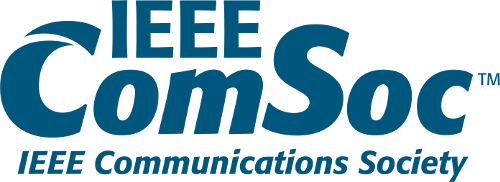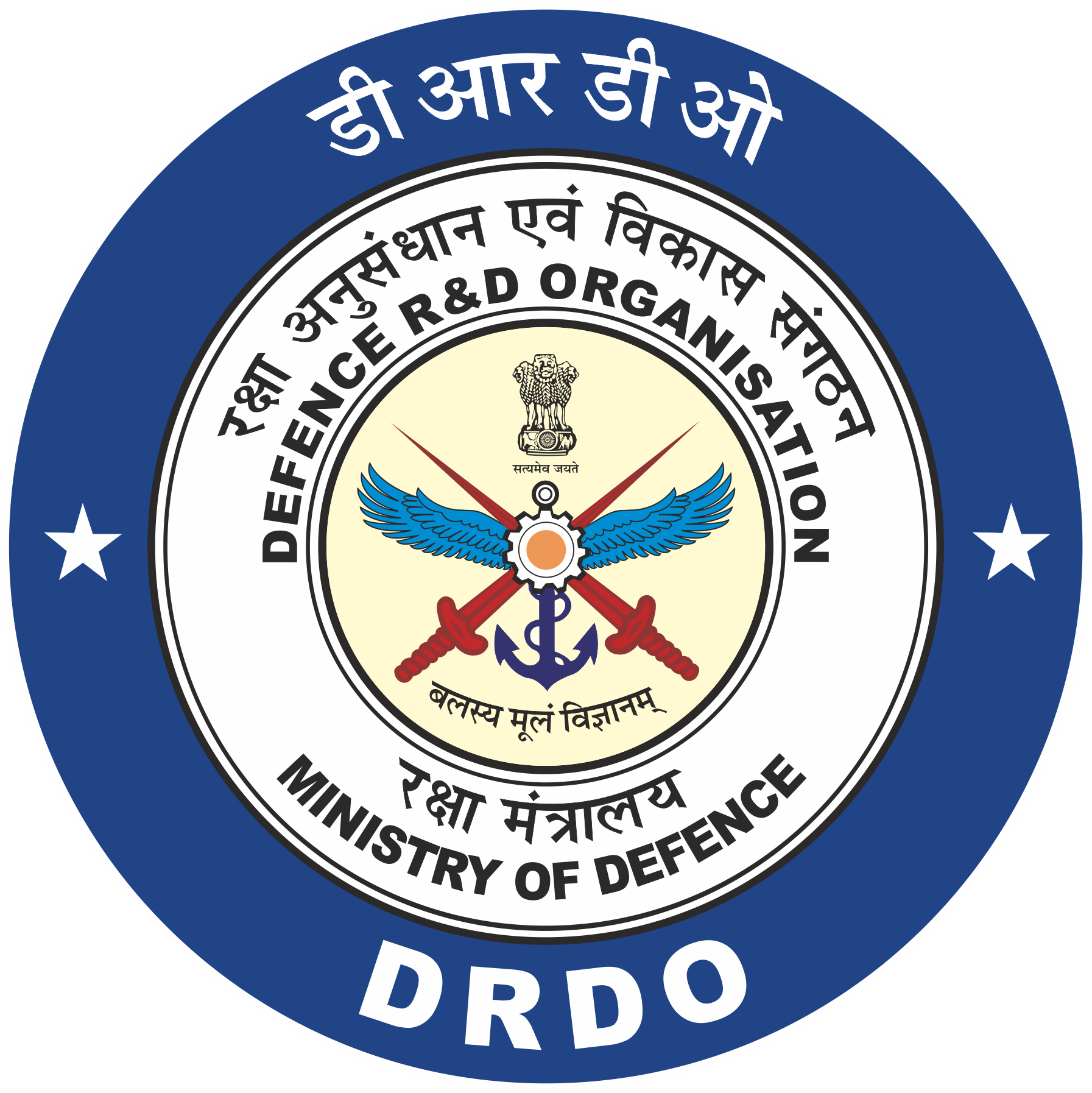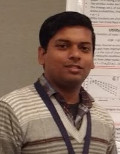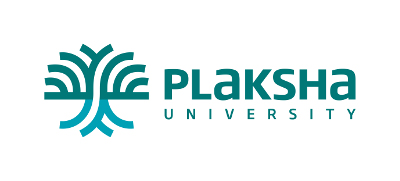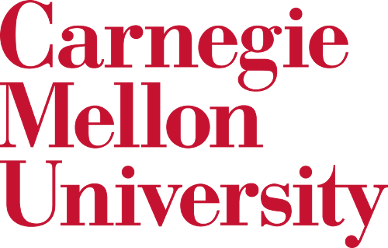Workshop on "Last-mile" Challenges and Standardization Opportunities in Smart Infrastructure
All workshops will be conducted in a hybrid mode. However, we strongly encourage physical attendance (including delegates/authors/speakers/chairs and OC members) for the workshops, especially if you are in India. There will be travel grant opportunities for authors traveling from within India.
Schedule
| January 4, 2022 | ||
|---|---|---|
| Venue: Sigma Hall 3 | ||
| Time | Title | Speaker/Authors |
| 10:00-10:15 | Welcome | |
| Session 1 | ||
| 10:15-11:00 | Invited talk | Dr. Aaditeshwar Seth |
| 11:00-11:20 | Orchestrating Resilient Communication Topology for Smart Connected Cities | Chaitanya Kapoor; R. v. Pankajavalli; Kiran Khanna; Dasari Hasmita; Athira Nair K; Sai Shibu N B |
| 11:20-11:35 | Tea break | |
| 11:35-11:55 | Efficient Last-Mile Link Adaptation in Next-Gen Wireless Heterogeneous Networks | Preeti Samhita Pati; Shubham Sahoo; Chetna Singhal; Raja Datta |
| 11:55-12.15 | What Slowed Down My App: A Measurement Study of Response Times of Smartphone Apps inIndia | Abhivanadn Pandey; Prince Sachdeva; Anjali I; Shradha Sabhlok; Mukulika Maity; Arani Bhattacharya |
| 12:15-1:00 | Invited talk: Wireless last mile options - IEEE 802.11 v/s 3GPP Technologies | Jatin Parekh |
| 1:00-2:00 | Lunch | |
| Session 2 | ||
| 2:00-2:20 | PIM2R: Packet interactive multi-media response for frugal, effective and scaled last mile connectivity | Bhaskar Pawar; Harsh Vishwakarma; Karan Bhavsar; Sujit Shinde; Sanjay Madhukar Kimbahune |
| 2:20-2:40 | VISTA: Fast and Efficient Traffic Surveillance by Video Tile Sampling | Shubham Chaudhary; Aryan Taneja; Anjali Singh; Mukulika Maity; Arani Bhattacharya |
| 2:40-3:25 | Invited talk: Building Digital Infrastructure of Smart Cities | Dr. Rohit Verma |
| 3:25-3:40 | Tea break | |
| Session 3 | ||
| 3:40-4:25 | Invited talk: Fixed Wireless for Broadband: Challenges and approaches | Dr. Rabin Patra |
| 4:25-5:25 | Keynote talk: Building AI Applications in the Home | Dr. Iqbal Mohomed |
| 5:25-5:35 | Closing Remarks | |
Keynote speakers
Iqbal Mohomed
Director at Samsung AI Centre TorontoVisit Homepage
Iqbal Mohomed is a Director of Research at Samsung's Toronto AI Research Centre, and leads projects in the area of Interactive Visual Understanding. His group's mission is to develop and productize core AI technologies that will power Samsung's vision of next-generation device interaction. Previously, he was a Senior Staff Researcher at Samsung Research America (Mountain View, CA). Prior to Samsung, Iqbal was a Research Staff Member at IBM's TJ Watson Research Lab, and he was a post-doctoral researcher at Microsoft Research Silicon Valley. Iqbal earned his PhD from the University of Toronto in Canada.
Invited speakers
Rabin Patra
Co-founder at Tarana Wireless, USAVisit Homepage
Broadband internet access networks are still swamped by ever-increasing demand fueled by cloud computing and video. While fiber and other wired solutions are throttled by high costs, protracted installation timelines and regulatory complexity, today's wireless technologies like WiFi and 5G also miss the mark.
Outdoor urban fixed wireless networks suffer from poor real-world performance because of obstructions, unpredictable interference and dynamic environmental changes. They are also often hard to install and expensive if new towers have to be built. Solving these problems needs the development of novel technologies for a) fast and efficient multi-path beamforming to work in non-line-of-sight conditions b) very-high spectral reuse to minimize spectrum requirements and c) real-time cancellation of interference in unlicensed bands.
We will discuss results from real-life deployments of Tarana's multi-antenna technology that has shown gigabit speeds in non-light-of-sight conditions with spectral efficiency reaching 100 bits/s/Hz.
Rabin Patra is a co-founder of Tarana Wireless, a startup that builds spectrally efficient fixed wireless access technologies. After getting his BTech degree in Computer Sc. & Eng. from IIT Kharagpur, Rabin obtained his PhD in Computer Science with the TIER research group at the University of California at Berkeley. For his doctoral research, Rabin developed low-cost long-distance wireless systems using WiFi hardware and put them in real-world action with organizations such as Aravind Eye hospitals and Airjaldi in India. Rabin’s broad research interests are in building wireless technologies with a focus on smart antenna systems and networks that have self-aligning and self-managing capabilities. Tarana Wireless has now launched the first practical fixed-wireless alternative to fiber for residential, enterprise, and urban broadband.
Aaditeshwar Seth
IIT Delhi, IndiaVisit Homepage
Aaditeshwar Seth is a faculty in the Department of Computer Science at IIT Delhi, and co-founder of the social enterprise Gram Vaani. Aaditeshwar is passionate about building technologies that can empower people with information. Work done by his team at Gram Vaani and students at IIT Delhi are now in use by over 150 developmental organizations, and more than 2 million people have directly touched their platforms. Several elements of their work have also been adopted by government departments for scaleup, and have influenced the use of ICTs for development within many international aid and development organizations.
Rohit Verma
University of Cambridge, Cambridge, UKVisit Homepage
Rohit Verma is a Postdoctoral Researcher at the Department of Computer Science and Technology, the University of Cambridge since February 2020. He received his B.Tech (Computer Science and Engineering) degree from the National Institute of Technology, Durgapur, India. He then worked at Schneider Electric India as an SDE till 2015, before joining PhD at the Indian Institute of Technology, Kharagpur (2016-2019), where he was a TCS Research Fellow. His work is focused on the real-time aspect of data generated by sensors deployed at a citywide scale. The idea is not only to store and learn from the data that these citywide sensors generate but also make crucial decisions with minimum latency to support the city's needs.
Accepted Papers
- Efficient Last-Mile Link Adaptation in Next-Gen Wireless Heterogeneous Networks
Preeti Samhita Pati; Shubham Sahoo; Chetna Singhal; Raja Datta - Orchestrating Resilient Communication Topology for Smart Connected Cities
Chaitanya Kapoor; R. v. Pankajavalli; Kiran Khanna; Dasari Hasmita; Athira Nair K; Sai Shibu N B - PIM2R: Packet interactive multi-media response for frugal, effective and scaled last mile connectivity
Bhaskar Pawar; Harsh Vishwakarma; Karan Bhavsar; Sujit Shinde; Sanjay Madhukar Kimbahune - VISTA: Fast and Efficient Traffic Surveillance by Video Tile Sampling
Shubham Chaudhary; Aryan Taneja; Anjali Singh; Mukulika Maity; Arani Bhattacharya - What Slowed Down My App: A Measurement Study of Response Times of Smartphone Apps inIndia
Abhivanadn Pandey; Prince Sachdeva; Anjali I; Shradha Sabhlok; Mukulika Maity; Arani Bhattacharya
Background
The world is undergoing an unprecedented pace of urbanization; and if present trends continue, the world urban population will rise at a phenomenal rate in the next few years. This rapid scale of urbanization will need smarter, sustainable cities based on smart infrastructure that are able to effectively and efficiently manage city utilities and services for its citizens. Electric grids, water distribution systems, transportation systems, communication infrastructure, waste treatment plants, commercial buildings, hospitals, homes, and education centers are existing vital facilities and infrastructure components that shape the liveability standard of a city. On the other hand, in rural communities last mile connectivity has always been a challenge. As the cities are becoming smarter, the rural parts also need last mile intelligent solutions. In the future, newer infrastructures and services will also bring benefits and create opportunities of added value to its people. An efficient and effective management of these existing and new city-wide and rural systems’ requires digital transformation and harmonization of its traditional infrastructure.
Rationale
The 5th edition of LastMileS workshop, to be held in conjunction with COMSNETS 2022, is a cross-cutting forum where technology, techno-commercial and governance aspects will converge under the overarching theme of “Last-mile Challenges and Standardization Opportunities in Smart Infrastructure”. LastMileS will bring together researchers, practitioners, smart-city stakeholders and thought-leaders, in a collaborative discussion mode, to present their latest innovations in the area of an appropriate “last-mile” communication, networking, and data transfer framework; with a deep focus on enabling digital transformation and harmonization of smart infrastructure to help bring down the CAPEX and OPEX in the upcoming smart cities deployments around the world.
The workshop format will include invited talks and peer-reviewed paper presentations. Hence, we welcome submissions that provide a systems approach to smart infrastructure; which address the complex interplay of various technical aspects within the “last-mile” service delivery purview at large scale. While the work may not necessarily be addressed at large scale, however, the scope of the idea and solutions must be able to address the last-mile problems at large scale. We are particularly looking for papers reporting on experimental results of deployed systems, summaries of challenges or advancements, measurements, and innovative applications; with a clear focus on standardization elements.
Topics of interest include, but are not strictly limited to:
- Practical experiences from “large-scale, city-wide” deployments, measurements, case studies, and applications
- System design/architectural nuances and best practices for “large-scale city-wide” deployments
- Interoperability and harmonization challenges in “large-scale city-wide” systems, and standardization models
- “Last-mile” system (i.e., device, network, topology, data, configuration, mobility, and fault) management and troubleshooting at “large-scale”
- Programming and debugging methodologies at “large-scale”
- Dependability, adaptation, intermittency, and assembly methodologies at “large-scale”
- Trust, security, privacy, and authentication methodologies at “large-scale”
- Energy harvesting/scavenging methodologies and best practices for “decade long” operational life-time
- Middleware design methodologies for “large-scale” systems
- Edge-driven computing models and light-weight virtualization for heterogeneous data traffic and QoS requirements
- Last mile system (i.e., device, network, topology, data, configuration, mobility, and fault) challenges in rural scenarios
Two types of submissions are solicited:
- Full papers: Maximum length of 6 pages, including title, author list, abstract, all figures, tables, and references. At least one author of each accepted paper must register for the workshop and present the paper.
- Vision abstracts: Extended abstract that offers a future vision for a research and standardization direction in this space, of maximum length of 3 pages. The abstract should include title, author list, narrative (the vision statement), and references. At least one author of each accepted abstract must register for the workshop and participate in a future visions session. The session will include short talks by authors of accepted abstracts, followed by discussion.
Submission Guidelines
- LastMileS invites submission of original work not previously published, or under review at another conference or journal.
- Submissions (including title, author list, abstract, all figures, tables, and references) must be no greater than 6 pages in length for Full papers, and must be no greater than 3 pages in length for Vision abstracts. A minimum number of 3 pages are required.
- Reviews will be single-blind: authors name and affiliation should be included in the submission.
- Submissions must follow the formatting guidelines as given on IEEE Website; and those that do not meet the size and formatting requirements will not be reviewed.
- All papers must be in Adobe Portable Document Format (PDF) and submitted through the LastMileS Workshop submission site on EDAS.
- All workshop papers (full papers - both regular and invited) will appear in conference proceedings and submitted to IEEE Xplore as well as other Abstracting and Indexing (A&I) databases.
EDAS link for paper submission: https://edas.info/N28671
Important Deadlines
| Paper Submission Deadline | |
| Camera-ready Submission | 15th December 2021 |
| Workshop Date | 4th January 2022 |
Program Committee:
- Samar Agnihotri, Indian Institute of Technology Mandi, India
- Vivek Bohara, Indraprastha Institute of Information Technology, Delhi, India
- Stefano Chessa, Universita' di Pisa, Italy
- Gaurav Kasbekar, Indian Institute of Technology Bombay, India
- Sudhan Majhi, Indian Institute of Technology Patna, India
- Vinayak Naik, BITS Pilani, India
- Bhaskaran Raman, Indian Institute of Technology Bombay, India
- Harry Skianis, University of the Aegean, Greece
Workshop Co-Chairs

Mukulika Maity
IIIT Delhi, India

Chetna Singhal
IIT Kharagpur, India




